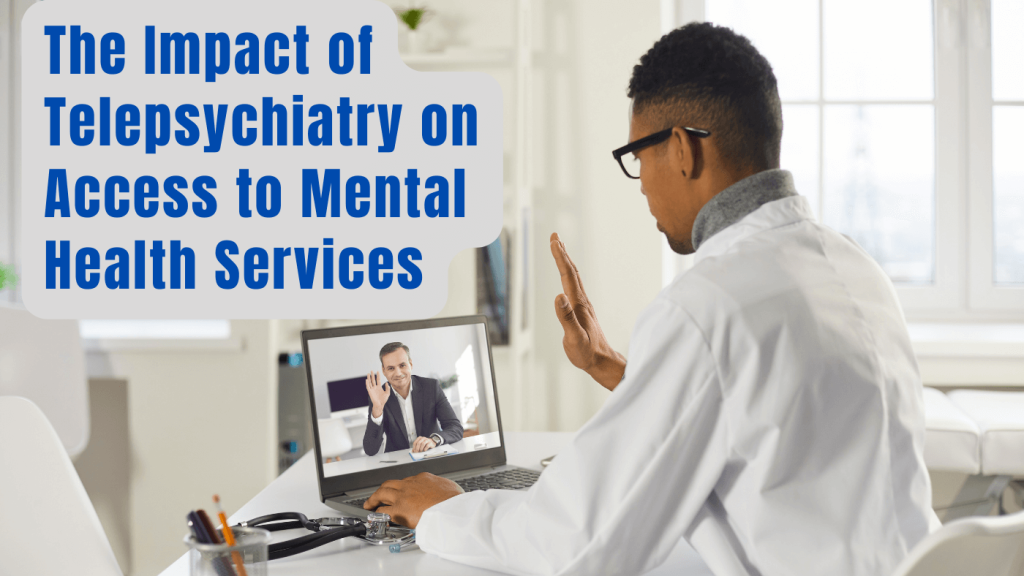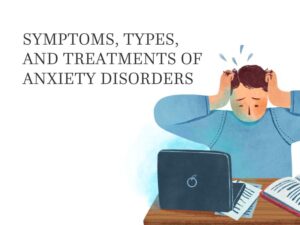In the past few decades, there has been a dramatic increase in the use of telepsychiatry. Telepsychiatry is a type of psychiatry that allows patients to receive treatment from a mental health professional over video chat or video conferencing. This method has many benefits for patients but also presents some challenges.
While more research is needed on telepsychiatry, studies have shown that it can help improve outcomes for those with depression and anxiety disorders by providing less expensive and faster care than traditional methods.
Telepsychiatry has many benefits for patients but also presents some challenges.
Telepsychiatry can be used as a primary care service and has been shown to improve patient outcomes by reducing hospitalizations and emergency department visits, improving access to mental health services, reducing stigma associated with seeking treatment in public settings (such as hospitals), and increasing access to care in rural communities where psychiatrists may be scarce.
In addition to these potential benefits of telemedicine more research needs to be conducted before widespread adoption can take place due to concerns about privacy issues regarding electronic medical records being stored in servers outside of hospitals or clinics.
Telepsychiatry is helping to increase access to care.
Patients who live in rural areas or have difficulty getting to their healthcare providers are now able to receive treatment for their mental health issues without having to travel far.
Telepsychiatry also allows patients who may not be able to afford the cost of traveling for an appointment the opportunity to seek treatment from a professional at no additional cost.
Telepsychiatry is helping people get care when they need it and alleviating some of the shortages that exist in rural communities and small towns where there are fewer psychiatrists available per capita compared with larger cities.
This allows patients with mental health issues who were previously unable to access services because there were no nearby psychiatrists available close by now have easier access through telemedicine technology such as video conferencing services offered by companies such as MedPsych.
Telepsychiatry can be used as a primary care service.
Telepsychiatry has been shown to be effective in managing chronic conditions, such as diabetes and hypertension, as well as monitoring patients with serious mental health conditions such as schizophrenia or bipolar disorder.
It can also help monitor patients with serious physical health conditions such as cancer or heart disease.
Telepsychiatry services have the potential to improve patient outcomes, but more research is needed.
In a study of 471 veterans with posttraumatic stress disorder (PTSD), researchers found that those who received telepsychiatry had significantly lower scores on measures of depression, anxiety and PTSD compared with those who did not receive it.
However, it’s important to note that this study only looked at one type of mental health condition (PTSD) and did not consider other factors that may have influenced its results; therefore, further research should be conducted before drawing conclusions about the effectiveness of telepsychiatry overall.
Telepsychiatry provides care that is just as safe, effective and high-quality as traditional in-person therapy.
While some people may be hesitant to seek mental health care via telepsychiatry, it’s important to note that the practice has been shown to be just as effective and safe as traditional in-person therapy. In fact, studies have shown that patients in rural areas with limited access to mental health resources have better outcomes when provided with telepsychiatry services.
In addition to being just as safe and effective, telemedicine is also high quality — meaning you can trust the care you receive from a doctor who uses this method of treatment!
Telepsychiatry can help people who may not have access to affordable, quality mental health care.
If you don’t have a psychiatrist: Telepsychiatry allows you to connect with a professional from anywhere in the world through video chat or phone calls.
This means that if you live in an area where there aren’t many psychiatrists nearby and/or they’re all booked up with appointments, telepsychiatry can be used as an alternative way for you and your doctor (or therapist) to communicate about your condition(s).
If you don’t have health insurance: It’s true that some insurance plans cover telemedicine services such as virtual consultations with doctors or therapists via phone or Skype–but the majority do not cover these types of interactions at all.
This means that if someone doesn’t have health coverage but needs help managing their depression symptoms or anxiety attacks, they’ll need another way besides traditional face-to-face visits with professionals like psychologists and psychiatrists.
This is so patients can get diagnosed correctly first before starting treatment options like medication management programs which may include regular follow-up visits every few weeks depending on what kind of treatment plan has been set up specifically for each patient’s needs based on diagnosis type (i..e bipolar disorder vs schizophrenia).
Telepsychiatry allows doctors to provide care remotely and therefore spend more time with patients in need of urgent care.
Telepsychiatry is also referred to as videoconferencing, and it allows doctors to see patients from a distance. The technology has been around for decades, but it’s only recently that it has become more widely available.
Telepsychiatry is used to treat a variety of mental and behavioral health conditions.
Telepsychiatry is used to treat a variety of mental and behavioral health conditions, including depression, schizophrenia and bipolar disorder. It can also be used to help people with anxiety disorders or post traumatic stress disorder (PTSD).
Telepsychiatry can be useful for substance abuse treatment and eating disorders if those who need it have difficulty accessing services in person due to geographical location or other reasons.
It also enables more doctors to practice psychiatry without requiring a license in all 50 states.
Telepsychiatry allows patients who live far from their psychiatrists or therapists to receive care remotely. This can help those who are unable to travel for treatment, such as those living with disabilities or physical limitations on mobility.
Telepsychiatry can provide urgent care for people who need it most urgently–for example, someone who is experiencing suicidal thoughts and needs immediate attention from his or her psychiatrist.
MedPsych Telepsychiatry: The Future of Mental Health In Raleigh
Telepsychiatry is a great way to provide care for people who need it. It can be used as a primary care service, it helps to alleviate the shortage of mental health care professionals and it provides people with access to care from the comfort of their own homes or other locations.
With our innovative telepsychiatry services, we, at MedPsych, make professional mental health support accessible, convenient, and comfortable for everyone. Reach out to us and discover how we can connect you with therapy and support to match your unique needs. MedPsych Telepsychiatry – where the well-being of Raleigh and its residents come first.











